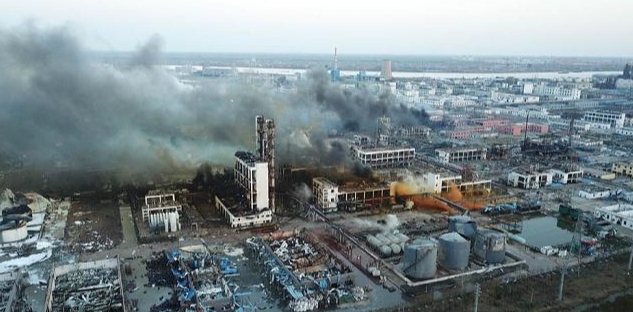Chemical industry research framework analysis
Question and answer session
Q1: There are many sub-fields in the chemical industry. From the buyer's point of view, how to grasp the whole?
The chemical industry stocks are divided into growth stocks and cyclical stocks. Growth stocks spend enough time doing desk work to determine whether there is growth. Cyclical stocks can be divided into value investments and speculative stocks. Speculative stocks require quick response because investment opportunities are short and require high responsiveness and trading levels. Therefore, whenever you encounter an investment opportunity, it is necessary to judge what kind of stock, to fully study the growth stock, there are enough reasons to demonstrate that it is a growth stock, cyclical stocks to see whether he is a long-term investment or a short-term trend. If it's a long-term trend opportunity, find enough evidence to justify it. Be cautious about ephemeral trends.

Q2: What are the biggest logics in the chemical industry? Such as raw material price changes, capacity expansion, contraction, etc.?
The biggest investment logic of any industry is its profitability, whether it is a high-valued growth stock or a low-valued cyclical stock. The high valuation of the growth stock includes everyone's expectation that his future performance can have a rapid growth. Cyclical stocks will relate to those just asked above, and then judge the improvement of the earnings situation.
Q3: From the perspective of supply and demand, what are the general forecasting methods for the downstream demand side of the supply side of chemicals? Especially considering the many downstream destinations of many chemicals, how to predict?
First of all, the chemical industry is different from some sub-industries with a high frequency of product renewal, such as electronics, computers, etc., which require researchers to be forward-looking enough, because once the product is replaced, it is likely to disrupt the existing product. But the chemical industry doesn't update as quickly as the computer or electronics industry. Therefore, chemical research is to do a good job of tracking, tracking is greater than forecast. For example, growth stocks, which industry does he follow to develop? For example, cyclical stocks, you need to track upstream and downstream price changes in a timely manner.
But there are some predictions to look at. If you predict, you can predict the downstream demand side. Then according to the downstream needs to determine which potential flashpoints may exist in the future, so that everyone can layout in advance. Through field research of this industry or enterprise, we can predict which enterprises may expand their production. Once the capacity is expanded, it may lead to more intense competition in the entire industry in the future. Therefore, we can judge whether the industry is worth our time to study by predicting the industry's production capacity.
Q4: How to find the risk points of chemical industry enterprises?

The risk point of high-growth stocks is more about whether the expected results can be delivered. The risk point of cyclical stocks is more about how the future development trend of the industry is changing. Whether it is a growth stock or a cyclical stock, a common risk that the chemical industry will face is that its products are high-risk products, and accidents such as explosions may occur. In addition, the risk points of chemical enterprises are not particularly different from those of other industries.
Q5: There are many sub-industries and listed companies in the chemical industry. Is there a classified research method and research focus in different periods?
The sub-industries are divided, and although each sub-industry is very different, there are some common characteristics in the same sub-industry. The research emphases of different periods are related to investment sentiment. If the market sentiment is good, people will favor some high-growth, high-valuation stocks; If the market is depressed, people will look for some defensive stocks, at this time we can focus on digging some relatively low valuations of the white horse. However, the cyclical trend opportunity of a cyclical industry does not depend on whether the market sentiment changes or not to determine whether it has a relatively large investment opportunity. For example, the fuel of 2012 and 2013, when the market sentiment was not very good, but it has a big trend to come, still become a bull stock when the market sentiment is bad. Study different types of stocks at different times to cope with changes in investment style and to do different layouts.
- ABB
- General Electric
- EMERSON
- Honeywell
- HIMA
- ALSTOM
- Rolls-Royce
- MOTOROLA
- Rockwell
- Siemens
- Woodward
- YOKOGAWA
- FOXBORO
- KOLLMORGEN
- MOOG
- KB
- YAMAHA
- BENDER
- TEKTRONIX
- Westinghouse
- AMAT
- AB
- XYCOM
- Yaskawa
- B&R
- Schneider
- Kongsberg
- NI
- WATLOW
- ProSoft
- SEW
- ADVANCED
- Reliance
- TRICONEX
- METSO
- MAN
- Advantest
- STUDER
- KONGSBERG
- DANAHER MOTION
- Bently
- Galil
- EATON
- MOLEX
- DEIF
- B&W
- ZYGO
- Aerotech
- DANFOSS
- Beijer
- Moxa
- Rexroth
- Johnson
- WAGO
- TOSHIBA
- BMCM
- SMC
- HITACHI
- HIRSCHMANN
- Application field
- XP POWER
- CTI
- TRICON
- STOBER
- Thinklogical
- Horner Automation
- Meggitt
- Fanuc
- Baldor
- SHINKAWA
- Other Brands




































































































































